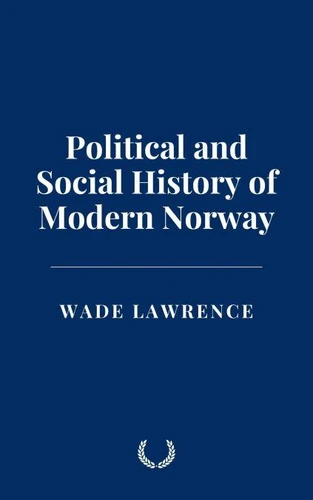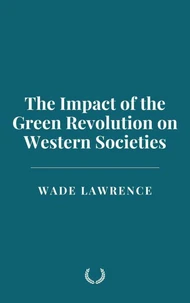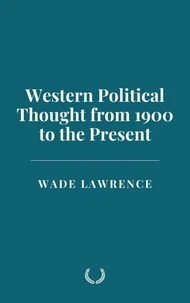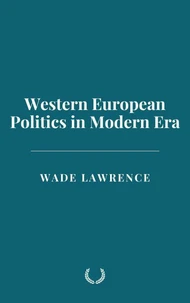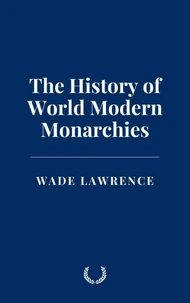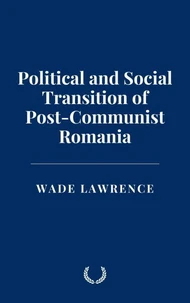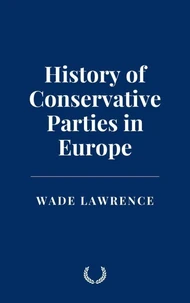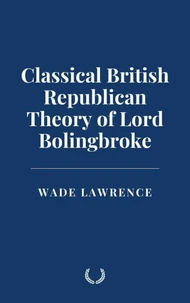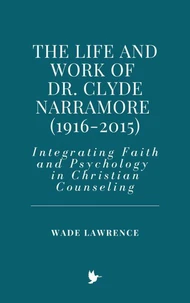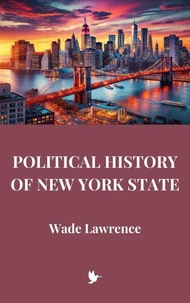Political and Social History of Modern Norway
Par :Formats :
Disponible dans votre compte client Decitre ou Furet du Nord dès validation de votre commande. Le format ePub est :
- Compatible avec une lecture sur My Vivlio (smartphone, tablette, ordinateur)
- Compatible avec une lecture sur liseuses Vivlio
- Pour les liseuses autres que Vivlio, vous devez utiliser le logiciel Adobe Digital Edition. Non compatible avec la lecture sur les liseuses Kindle, Remarkable et Sony
 , qui est-ce ?
, qui est-ce ?Notre partenaire de plateforme de lecture numérique où vous retrouverez l'ensemble de vos ebooks gratuitement
Pour en savoir plus sur nos ebooks, consultez notre aide en ligne ici
- FormatePub
- ISBN8227291912
- EAN9798227291912
- Date de parution20/01/2025
- Protection num.pas de protection
- Infos supplémentairesepub
- ÉditeurBig Dog Books, LLC
Résumé
This book provides a comprehensive exploration of the political and social history of modern Norway, tracing its journey from the formation of its independent national identity in the early 19th century to its present-day status as a highly prosperous, socially just, and environmentally conscious democracy. Beginning with the foundation of the Norwegian Constitution in 1814, the narrative examines key moments in Norwegian history, including its union with Sweden, the development of its welfare state, the challenges of neutrality during both World Wars, and the impact of the oil industry on its economic and political landscape.
The book highlights Norway's evolution through crucial social movements, such as the struggle for women's suffrage, the fight for LGBTQ+ rights, and the political debates surrounding immigration and multiculturalism. The narrative delves deeply into Norway's commitment to maintaining a strong, egalitarian welfare state while navigating the complexities of global integration, environmental challenges, and political polarization.
The book also explores the country's position within international contexts, including its relationship with the European Union, its leadership in peacebuilding efforts, and its approach to global environmental issues. From its stance on oil extraction and the tension between economic prosperity and environmental responsibility, to its handling of technological innovation and digital transformation, this book offers a nuanced analysis of Norway's role in the global community.
By intertwining political analysis, social dynamics, and economic shifts, this work provides a detailed portrait of a nation grappling with the balance between preserving its identity and adapting to a rapidly changing world. The book concludes by reflecting on the future of Norwegian democracy, its evolving role in global politics, and the ongoing challenges that define the nation's path forward.
Through historical events, intellectual discourse, and primary sources, the book offers a thorough examination of how Norway has navigated its way through the complexities of modernity while upholding its core values of equality, sustainability, and human rights.
The book highlights Norway's evolution through crucial social movements, such as the struggle for women's suffrage, the fight for LGBTQ+ rights, and the political debates surrounding immigration and multiculturalism. The narrative delves deeply into Norway's commitment to maintaining a strong, egalitarian welfare state while navigating the complexities of global integration, environmental challenges, and political polarization.
The book also explores the country's position within international contexts, including its relationship with the European Union, its leadership in peacebuilding efforts, and its approach to global environmental issues. From its stance on oil extraction and the tension between economic prosperity and environmental responsibility, to its handling of technological innovation and digital transformation, this book offers a nuanced analysis of Norway's role in the global community.
By intertwining political analysis, social dynamics, and economic shifts, this work provides a detailed portrait of a nation grappling with the balance between preserving its identity and adapting to a rapidly changing world. The book concludes by reflecting on the future of Norwegian democracy, its evolving role in global politics, and the ongoing challenges that define the nation's path forward.
Through historical events, intellectual discourse, and primary sources, the book offers a thorough examination of how Norway has navigated its way through the complexities of modernity while upholding its core values of equality, sustainability, and human rights.
This book provides a comprehensive exploration of the political and social history of modern Norway, tracing its journey from the formation of its independent national identity in the early 19th century to its present-day status as a highly prosperous, socially just, and environmentally conscious democracy. Beginning with the foundation of the Norwegian Constitution in 1814, the narrative examines key moments in Norwegian history, including its union with Sweden, the development of its welfare state, the challenges of neutrality during both World Wars, and the impact of the oil industry on its economic and political landscape.
The book highlights Norway's evolution through crucial social movements, such as the struggle for women's suffrage, the fight for LGBTQ+ rights, and the political debates surrounding immigration and multiculturalism. The narrative delves deeply into Norway's commitment to maintaining a strong, egalitarian welfare state while navigating the complexities of global integration, environmental challenges, and political polarization.
The book also explores the country's position within international contexts, including its relationship with the European Union, its leadership in peacebuilding efforts, and its approach to global environmental issues. From its stance on oil extraction and the tension between economic prosperity and environmental responsibility, to its handling of technological innovation and digital transformation, this book offers a nuanced analysis of Norway's role in the global community.
By intertwining political analysis, social dynamics, and economic shifts, this work provides a detailed portrait of a nation grappling with the balance between preserving its identity and adapting to a rapidly changing world. The book concludes by reflecting on the future of Norwegian democracy, its evolving role in global politics, and the ongoing challenges that define the nation's path forward.
Through historical events, intellectual discourse, and primary sources, the book offers a thorough examination of how Norway has navigated its way through the complexities of modernity while upholding its core values of equality, sustainability, and human rights.
The book highlights Norway's evolution through crucial social movements, such as the struggle for women's suffrage, the fight for LGBTQ+ rights, and the political debates surrounding immigration and multiculturalism. The narrative delves deeply into Norway's commitment to maintaining a strong, egalitarian welfare state while navigating the complexities of global integration, environmental challenges, and political polarization.
The book also explores the country's position within international contexts, including its relationship with the European Union, its leadership in peacebuilding efforts, and its approach to global environmental issues. From its stance on oil extraction and the tension between economic prosperity and environmental responsibility, to its handling of technological innovation and digital transformation, this book offers a nuanced analysis of Norway's role in the global community.
By intertwining political analysis, social dynamics, and economic shifts, this work provides a detailed portrait of a nation grappling with the balance between preserving its identity and adapting to a rapidly changing world. The book concludes by reflecting on the future of Norwegian democracy, its evolving role in global politics, and the ongoing challenges that define the nation's path forward.
Through historical events, intellectual discourse, and primary sources, the book offers a thorough examination of how Norway has navigated its way through the complexities of modernity while upholding its core values of equality, sustainability, and human rights.

